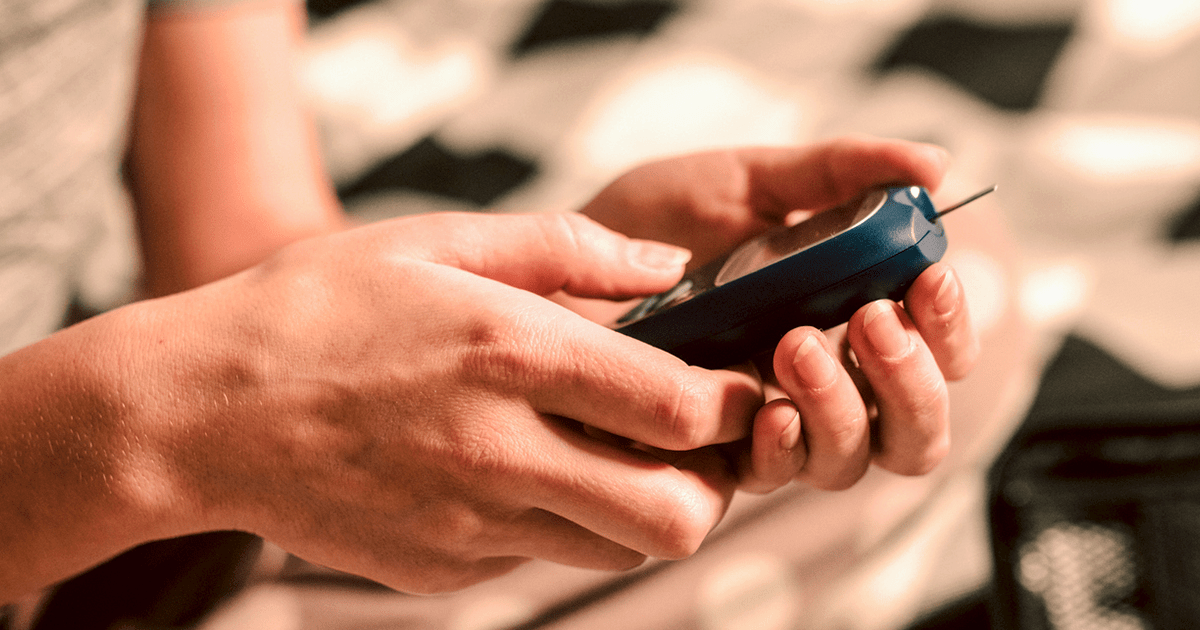One of the challenges of managing diabetes is maintaining consistent blood sugar (glucose) levels. Even with diligence, some situations can cause high blood sugar, or hyperglycemia, while others can bring on low blood sugar, or hypoglycemia.
There’s a lot you can do to minimize blood sugar ups and downs andavoid complications by monitoring your blood sugar levels with a glucose meter. How often to test depends on many factors, including the type of diabetes you have, any complications you’re facing, and the therapies you’re on, says Amber Taylor, MD, director of diabetes at the Center for Endocrinology at Mercy Hospital in Baltimore, Md.
It’s also important to know the signs of both high blood sugar and low blood sugar, and what actions to take to bring blood sugar levels back to a desired range.

About High Blood Sugar (Hyperglycemia)
Common signs of high blood sugar include frequent urination, feeling thirsty, eating more food but not gaining as much weight as usual, fatigue, dry or itchy skin, and more frequent infections, says Athena Philis-Tsimikas, MD of the Scripps Whittier Diabetes Institute in La Jolla, Calif.
A blood sugar reading above 180 milligrams per deciliter (mg/dL) is considered above normal and can bring on these symptoms, although it’s possible to have high blood sugar without any symptoms, Dr. Philis-Tsimikas says. A reading above 300 mg/dL is considered severe. If your blood sugar is above 250 mg/dL for two days, Philis-Tsimikas advises informing your doctor and asking for specific recommendations for treatment. Having blood sugar levels above 300 mg/dL for more than a week can lead to more severe symptoms such as nausea, drowsiness, blurred vision, confusion, and dizziness, especially when standing up from a sitting or lying position.
Ways to treat high blood sugar include:
- Taking your prescribed medications as directed
- Eating fewer carbohydrates with your meals
- Exercising regularly with your doctor’s guidance
About Low Blood Sugar (Hypoglycemia)
When your blood sugar drops rapidly or when the reading falls between 50 to 70 mg/dL if you take medications for diabetes, Philis-Tsimikas says you may experience early symptoms of low blood sugar such as shaking, sweating, rapid heartbeat, headache, hunger, weakness, fatigue, impaired vision, anxiety, irritability, and dizziness.
Blood sugar values that drop below 50 mg/dL are considered severe and can lead to more significant and dangerous symptoms such as difficulty concentrating, confusion, loss of consciousness, and seizures. If you experience more than two blood sugar readings below 50 mg/dL in a week, notify your doctor and go over your treatment plan.
To treat blood sugar below 70 mg/dL, Philis-Tsimikas recommends ONE of these options:
- Drink one-half to one cup of juice, skim milk, or regular soda OR
- Chew five to six hard candies OR
- Take four glucose tablets OR
- Swallow one tube of glucose gel
Then, check your blood sugar in 15 minutes. If it’s still below 70 mg/dL, eat more sugar. If your symptoms don’t stop, call your doctor or seek medical attention. If your blood sugar returns to normal, be sure to eat at your next scheduled meal or snack.
Use Supplement for Diabetes:
FENFURO Regular intake of FENFURO can control the blood sugar level effectively. FENFURO is a first of its kind, safe nutraceutical derived from fenugreek seeds through a patented process. Through its unique scientific process, FENFURO concentrates the bioactive part of plants into a manageable dose, while removing the inert parts such as cellulose. Also, since a lot of healthy botanicals are not palatable, consuming their concentrate in capsule form in small dosage is a lot easier. FENFURO contains a rich variety of saponins and flavonoids. These substances are known to lower blood lipid level and help in insulin sensitization and glucose regulation. FENFURO is the first dual action insulin sensitizer.
The statement and product have not been evaluated by the FDA to diagnose, treat, cure or prevent any disease.














